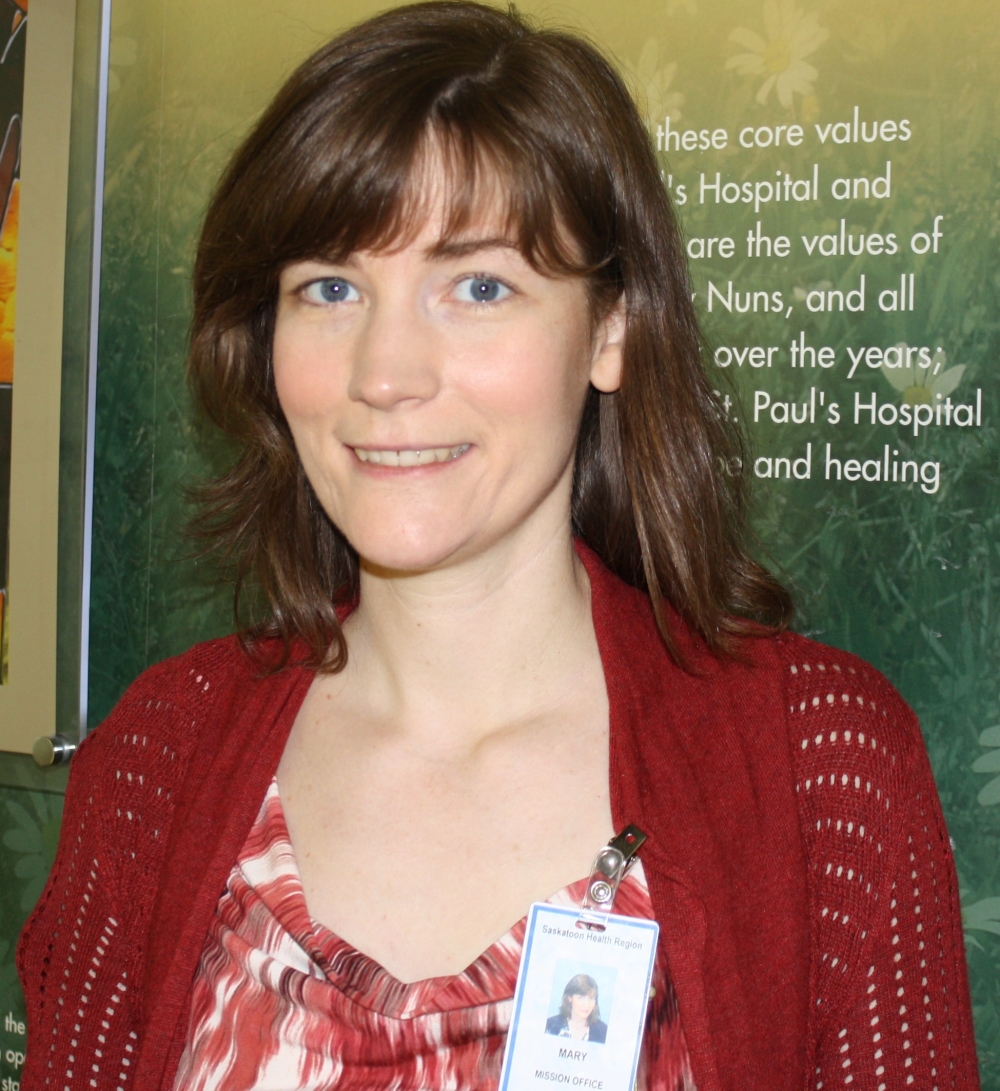A Day in the Life of an Ethicist

Dr. Mary Heilman (formerly Deutcher) is the Bioethicist at St. Paul’s Hospital and the Catholic Health Association of Saskatchewan
As is the case for most ethicists, my days are quite diverse. Many days are spent at my computer researching, reviewing and creating policies, and doing all the tasks that a bookworm like myself was born to do in peace and solitude.
But then there are the other days: the days when my phone rings.
In my mind, every time my phone rings, I think of the bat-phone ringing in the 1960s television series. Only instead of being called out of my cave to fight crime, I’m called out of my office to attentively listen to people’s stories and help them resolve ethical dilemmas. I realize that doesn’t sound that exciting but I assure you these ethics consultations are the most interesting, frustrating and fruitful part of being an ethicist.
Consultations are interesting because they cover a range of topics from medical assistance in dying to navigating family and care team relationships. However, consultations are also frustrating because usually by the time I am brought into the conversation, it is because the patient, family and care providers involved feel that they are stuck between a rock and a hard place.
When I first became an ethicist, a colleague said to me, “the problem with ethics is that no one is calling you with an easy problem – they are always calling you because the options are gut-wrenching.”
For example, a common issue that I am called in to discuss with staff, patients and families is eating at risk. As certain diseases progress, it can become more and more difficult for the people afflicted with them to swallow. At a certain point, it can become dangerous enough that the food the person is trying to swallow will go into their lungs instead of down to their stomach. This can cause pneumonia that in many cases will lead to death.
At this point the person is faced with three options: they can continue to eat with this risk of choking and/or pneumonia, they can receive a feeding tube, or they can stop eating altogether. This is a deeply personal decision, and most people do not make it lightly. This scenario is even more challenging because the decision the person makes will have a ripple effect on the person’s family and care team who will need to make their own decisions about their involvement in the person’s care.
As challenging as these cases can be, ethics consults are still wonderfully fruitful because I am given a unique opportunity to see how committed my colleagues are to finding the best possible outcomes for their patients. The heart of clinical ethics is finding ways to see the other person’s perspective and to dream together new ways of doing things.
In the above scenario, this could mean altering the texture of foods to make them easier to swallow, or helping a person work through their discomfort concerning a feeding tube, or moving towards a palliative approach if someone is nearing the end of their life. These options can only be fully considered when the whole care team is involved with the patient and his or her family. This collaboration is key to providing exceptional care and it is such a gift to see it in action at St. Paul’s Hospital on a regular basis.
The next time you meet someone in the hospital who is struggling with a difficult decision, think of me, sitting at my computer, waiting for a phone call to connect me with the amazing people of St. Paul’s Hospital. Encourage them to reach out. You never know where one phone call could lead.
Dr. Mary Heilman, Bioethicist for St. Paul’s Hospital and the Catholic Health Association of Saskatchewan

